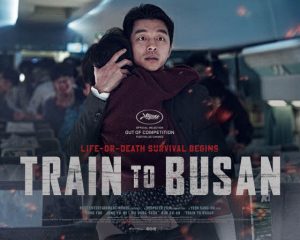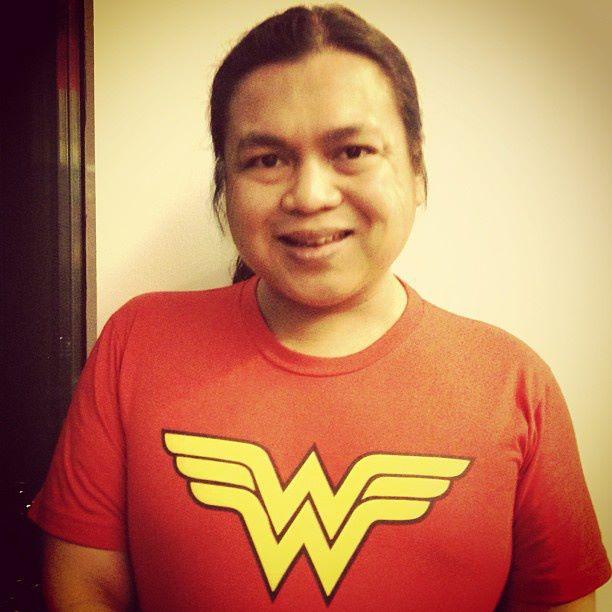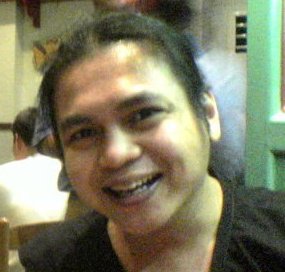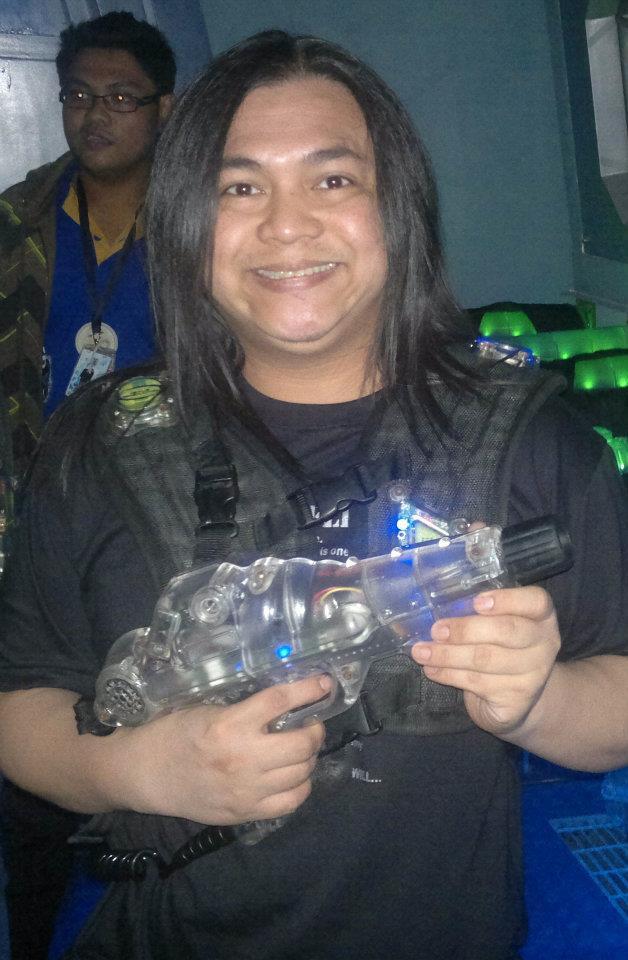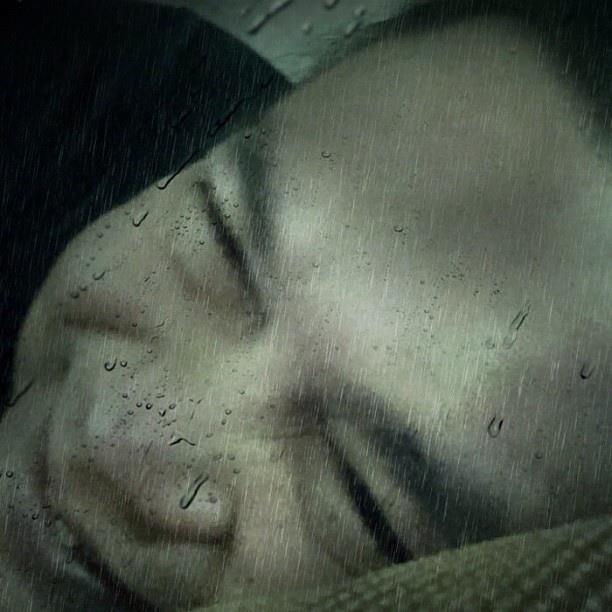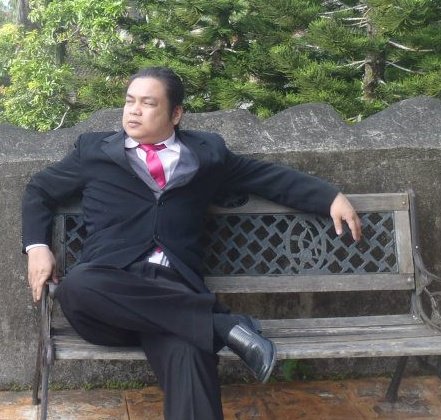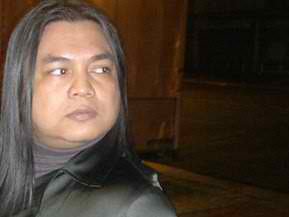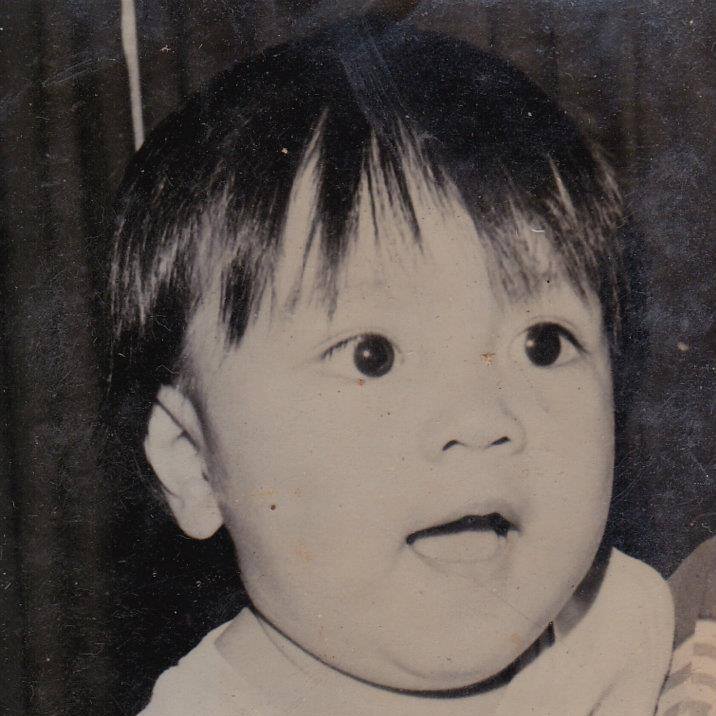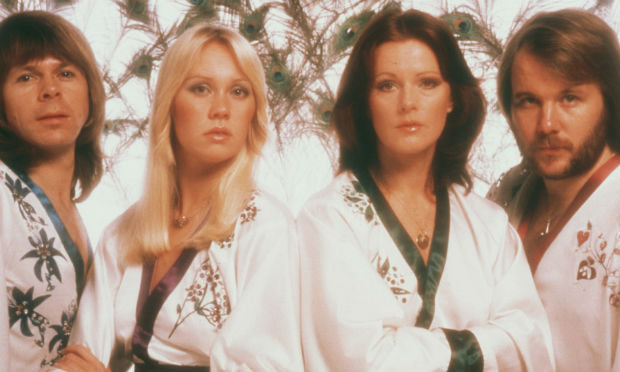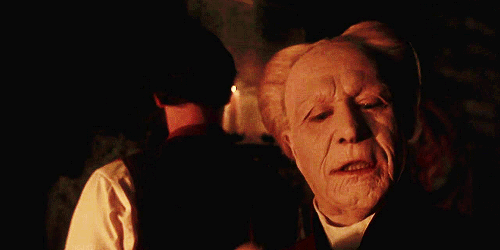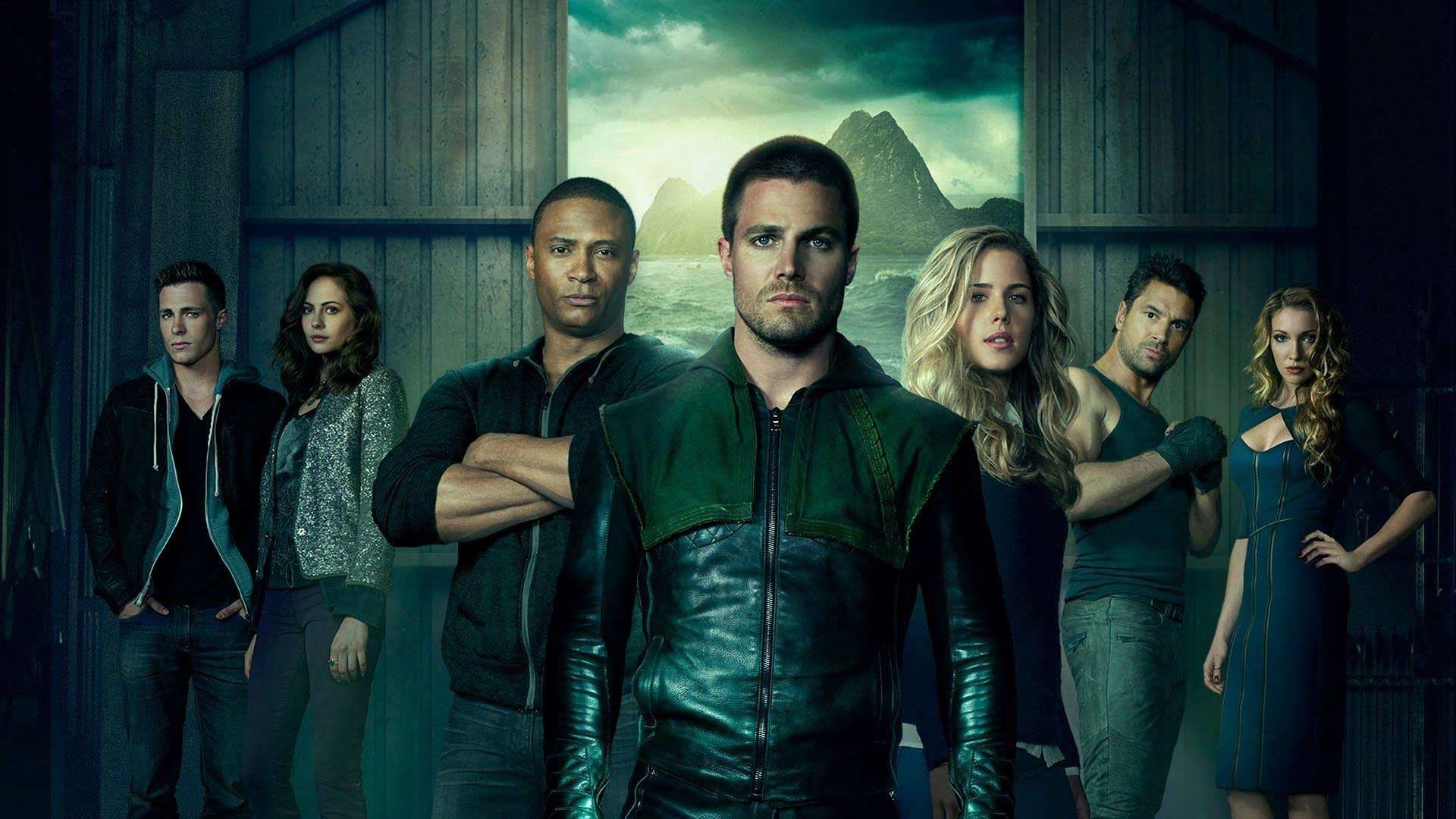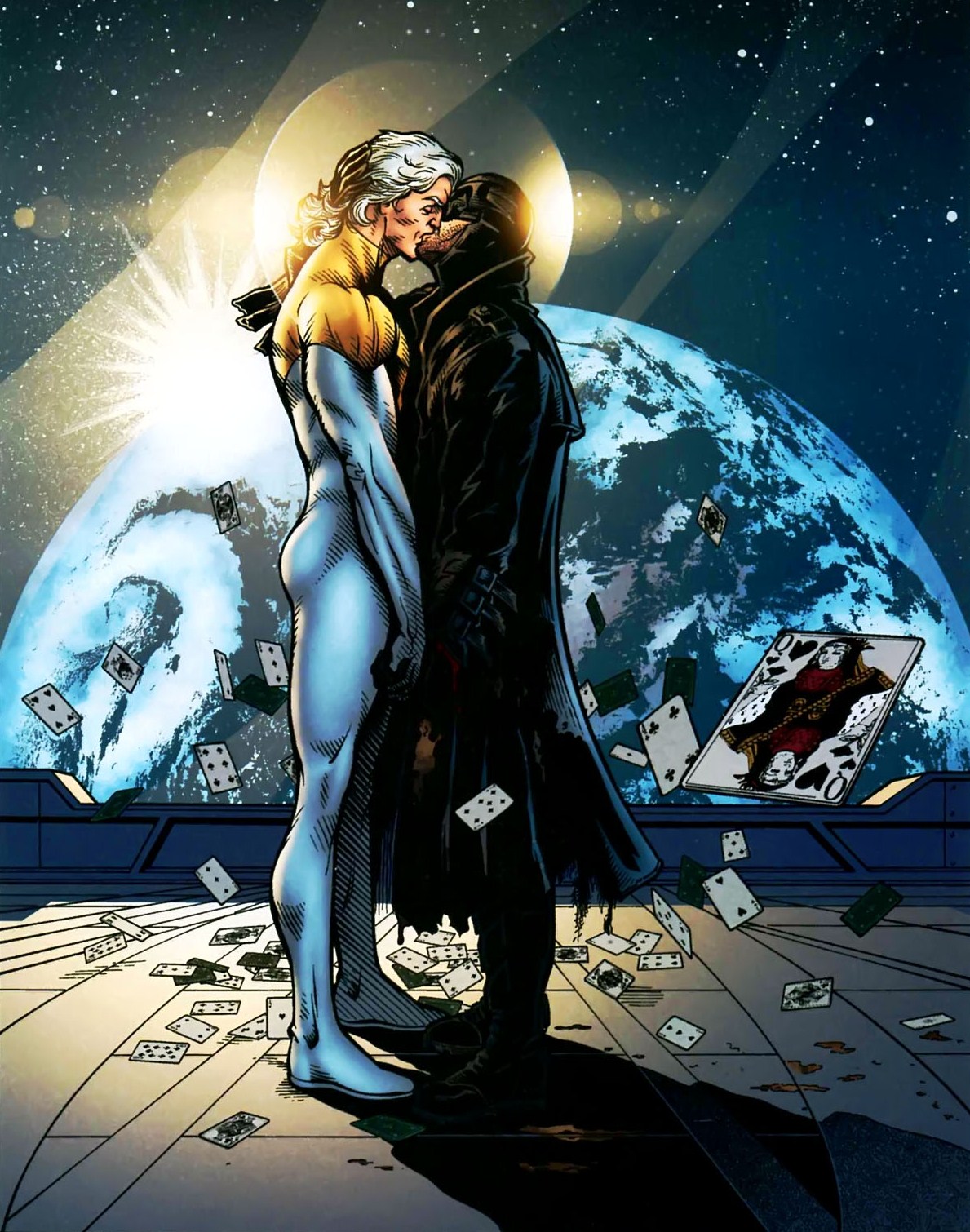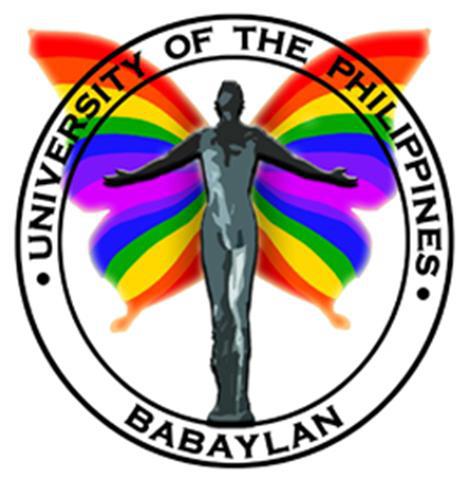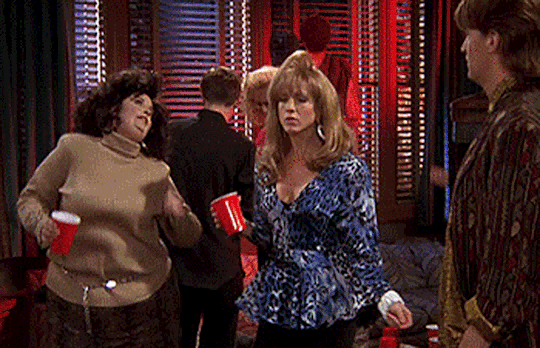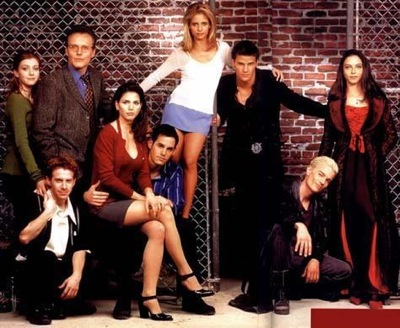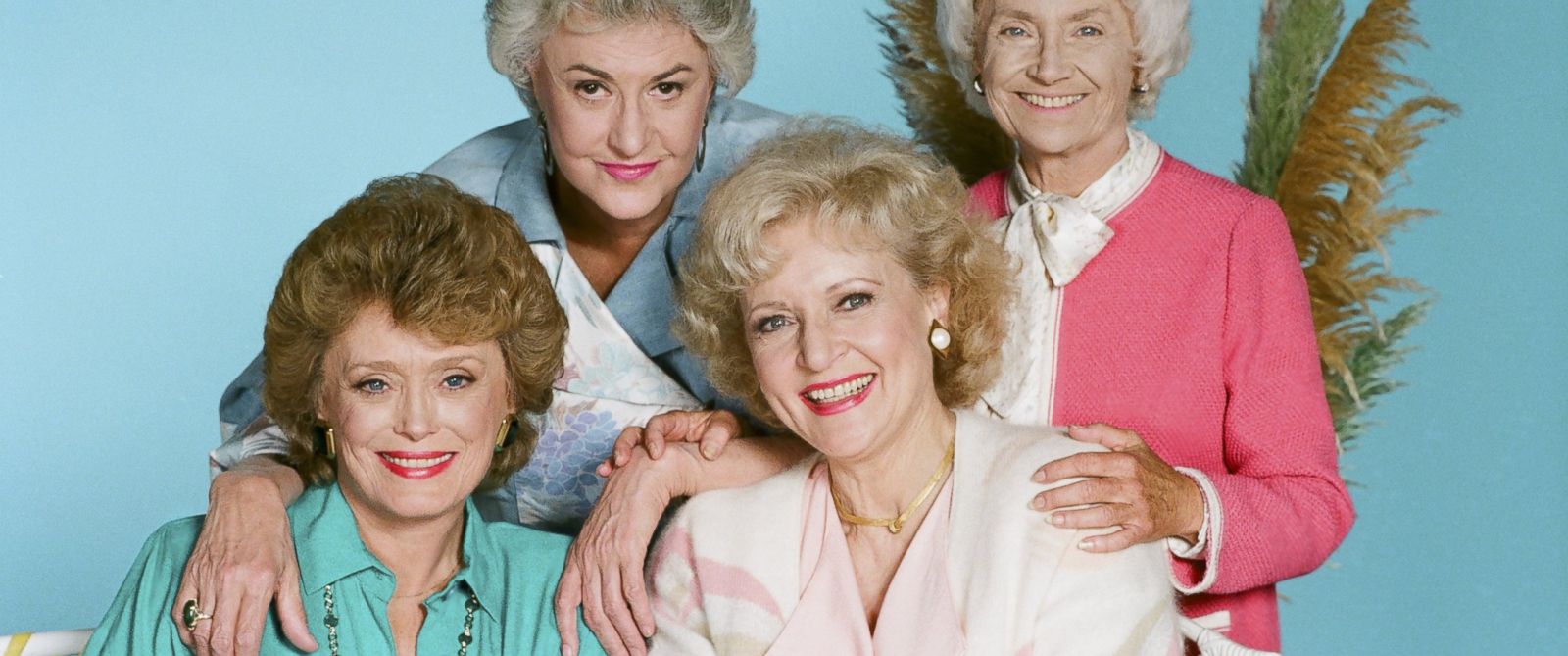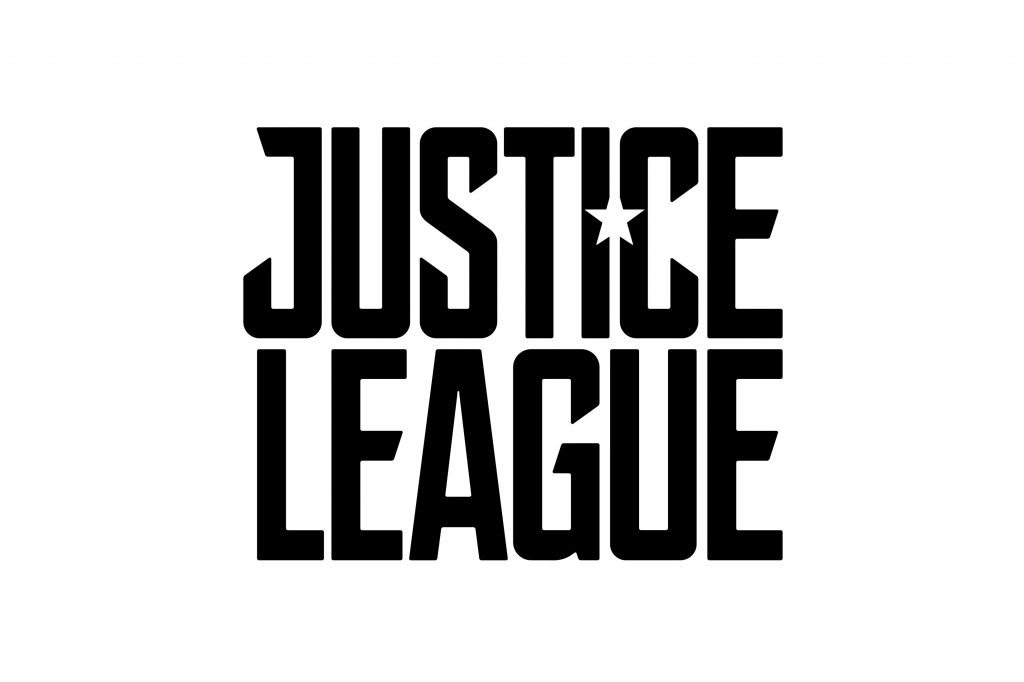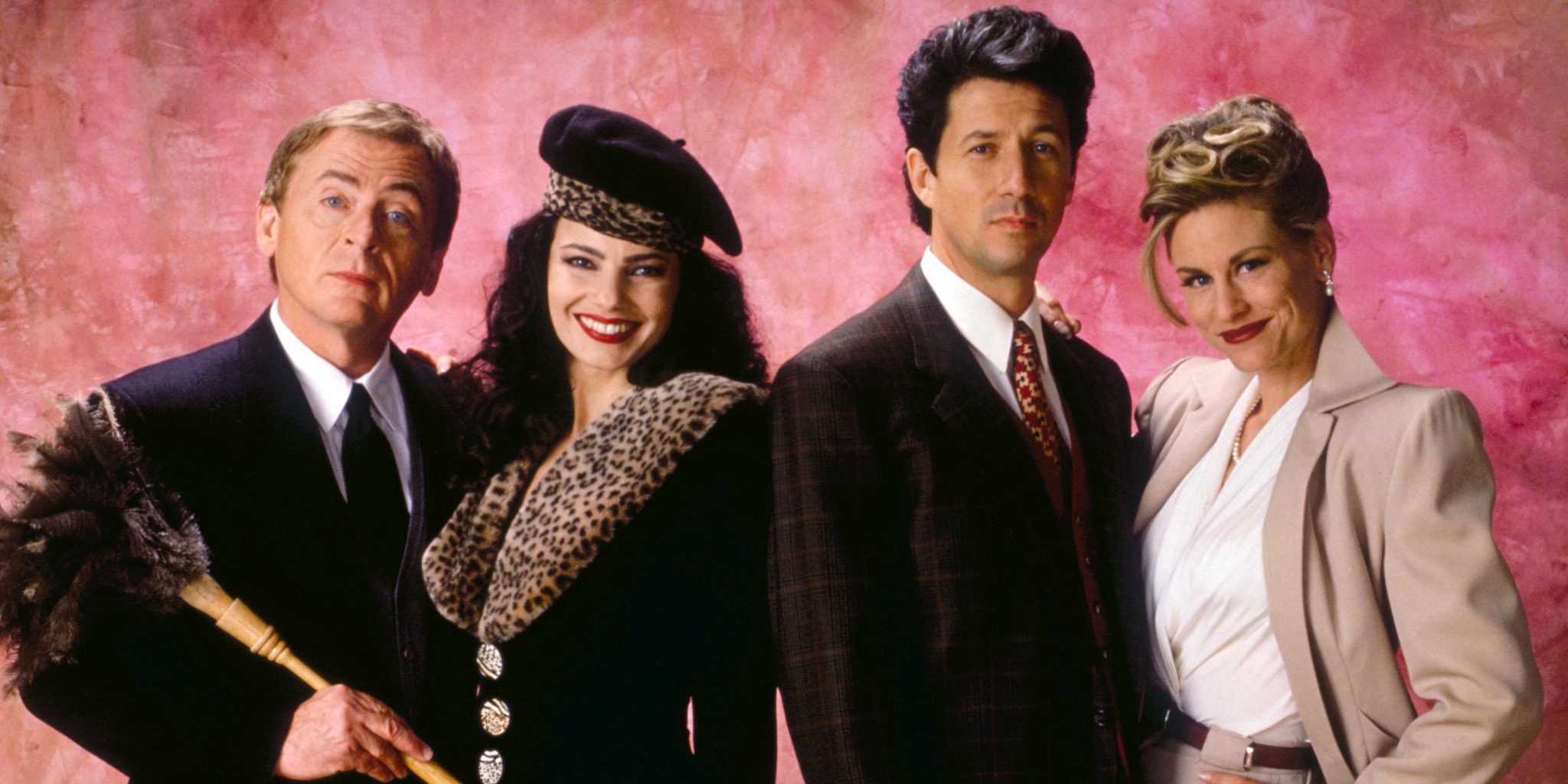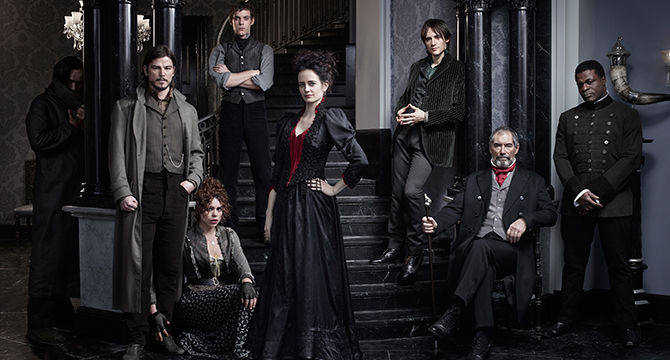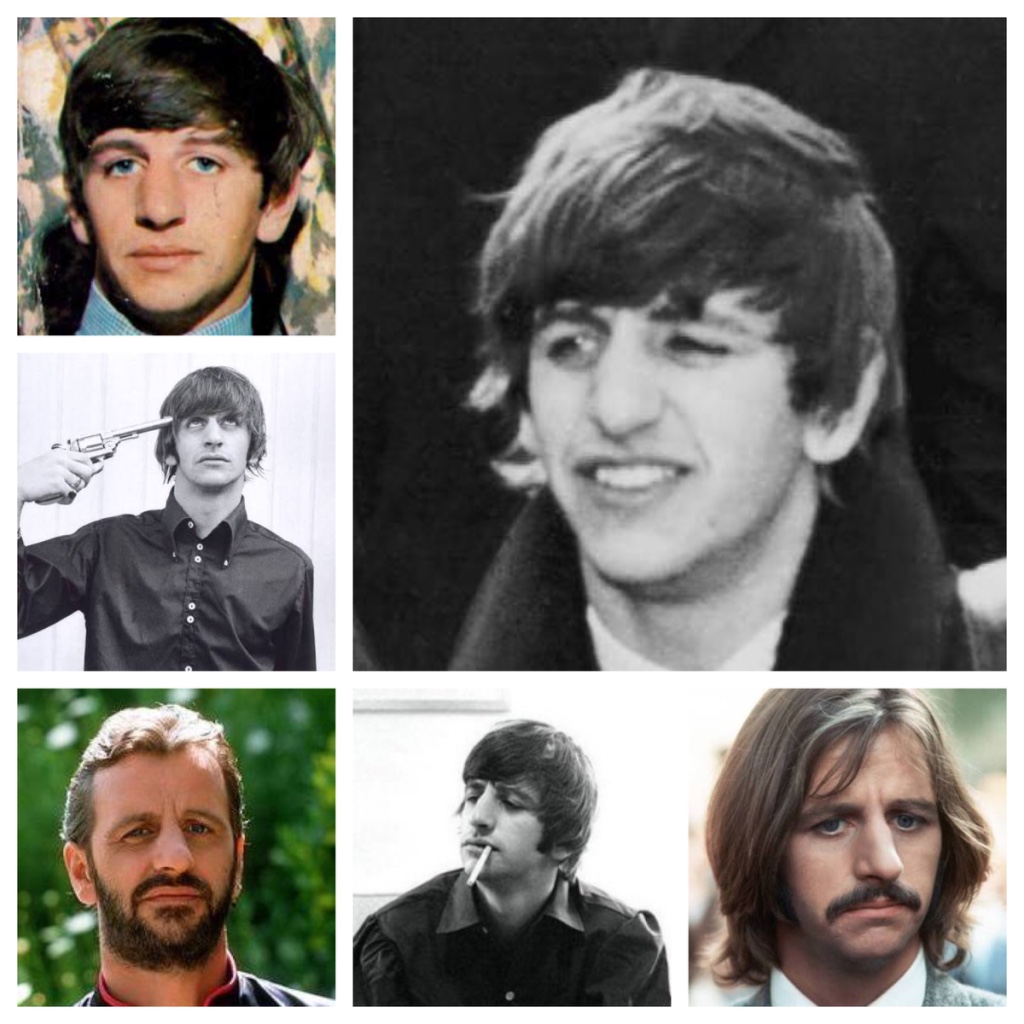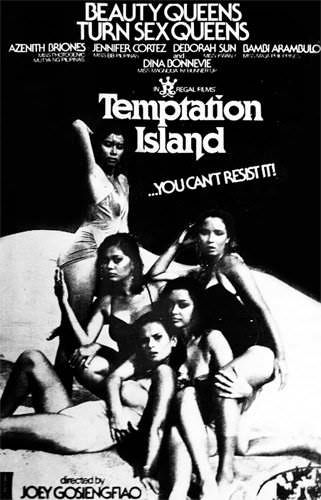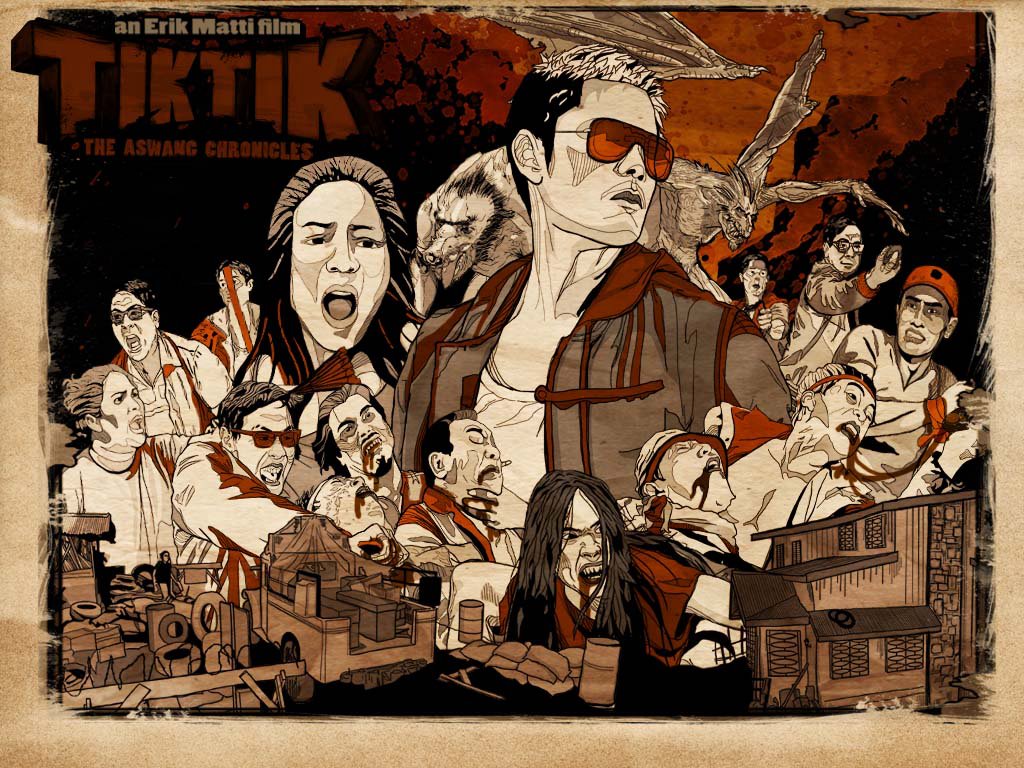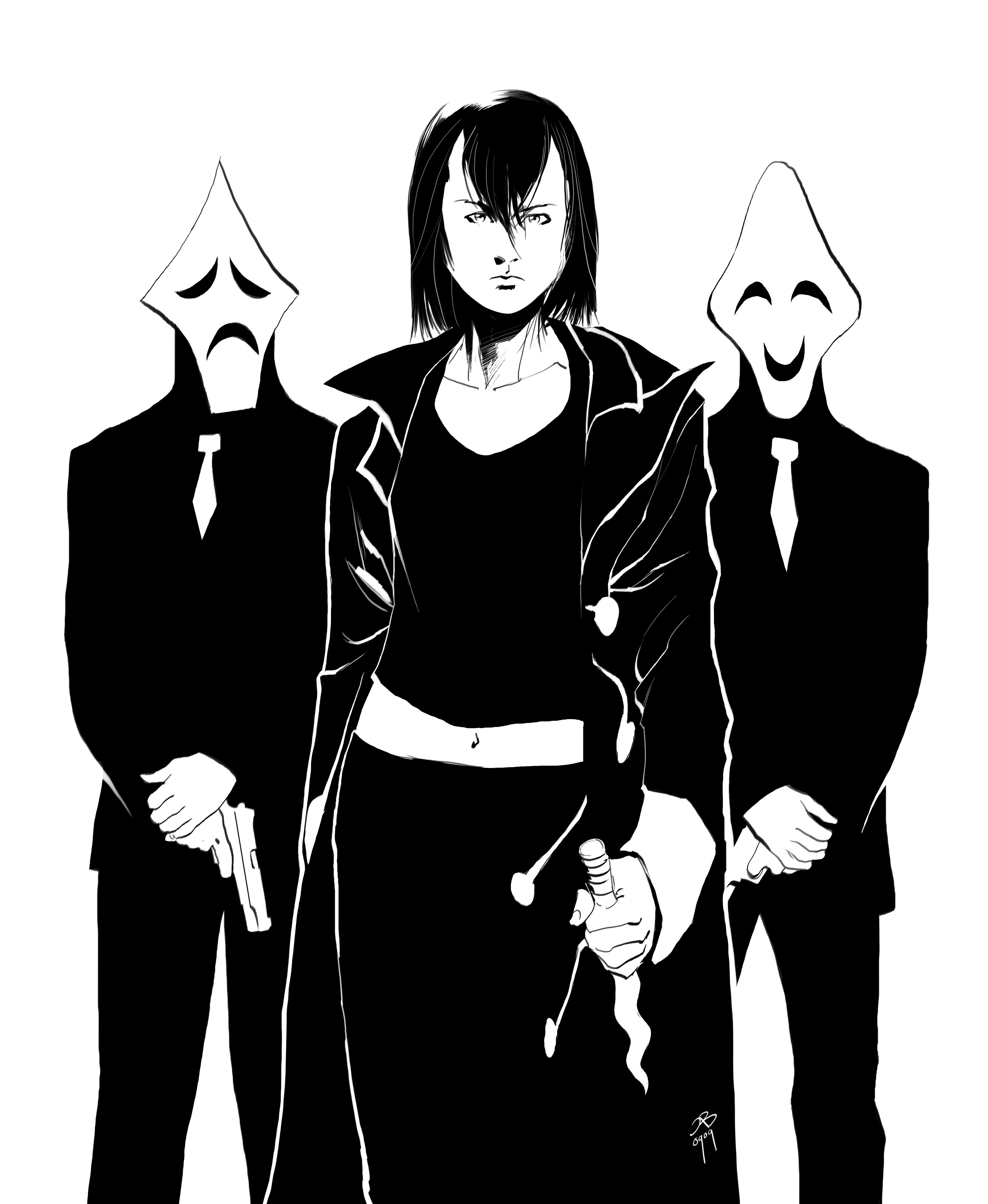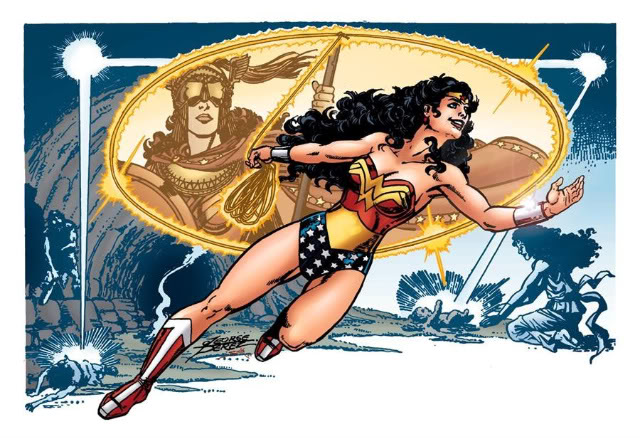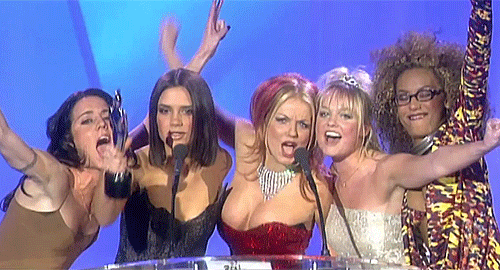Mob Mentality
by allancarreon on Sep.05, 2016, under Film & TV, Society
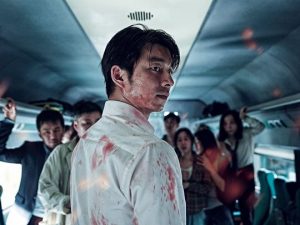 As my mentor Jessica taught me when I was developing my aswang novels, the best monster stories work on three levels… and I quote her notes to me back in 2013, “the horror tale, which should be scary/creepy as hell; the psychological, in which the monster embodies some part of the protagonist’s character that he denies or is not aware of; and the metaphorical, where the monster symbolizes some social reality. Hence Frankenstein: homicidal monster, creator with a god complex, the Industrial Revolution.”
As my mentor Jessica taught me when I was developing my aswang novels, the best monster stories work on three levels… and I quote her notes to me back in 2013, “the horror tale, which should be scary/creepy as hell; the psychological, in which the monster embodies some part of the protagonist’s character that he denies or is not aware of; and the metaphorical, where the monster symbolizes some social reality. Hence Frankenstein: homicidal monster, creator with a god complex, the Industrial Revolution.”
Indeed, all the blood and gore and creep factors are great, but what elevates a tale are the added psychological and social dimensions that provide a richer experience for the audience. Otherwise, it’s just blood and gore and creep factors. This is why the likes of Dracula, The Vampire Chronicles, Lovecraft’s works, Stephen King’s novels, Buffy the Vampire Slayer, Penny Dreadful, Ringu, and Ju-On work so well. In the Filipino context, we see these layers in Ang Pamana: The Inheritance, Patayin sa Sindak Si Barbara, Sigaw, SRR2’s Aswang, Yanggaw, Dagim, and Trese, among many others.
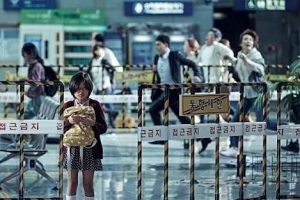 In horror film, these added layers are present in the best of the best across the board, but perhaps none more so apparent than in the zombie sub-genre. Name the most well-received zombiepocalypse films, and there will invariably be a riveting – often biting – social commentary underneath the hordes of the dead walking (or sprinting) across the screen. Perhaps at the top of the list would be George Romero’s Dawn of the Dead (as well as its 2004 Zack Snyder remake), which was a critique of consumerism, and Danny Boyle’s 28 Days Later, which was an in-depth study of what happens when you amplify the dark side of human nature.
In horror film, these added layers are present in the best of the best across the board, but perhaps none more so apparent than in the zombie sub-genre. Name the most well-received zombiepocalypse films, and there will invariably be a riveting – often biting – social commentary underneath the hordes of the dead walking (or sprinting) across the screen. Perhaps at the top of the list would be George Romero’s Dawn of the Dead (as well as its 2004 Zack Snyder remake), which was a critique of consumerism, and Danny Boyle’s 28 Days Later, which was an in-depth study of what happens when you amplify the dark side of human nature.
Undeniably joining the ranks of the best zombie flicks ever is this year’s Train To Busan, a South Korean film that has swept the world by storm after premiering at Cannes. I would go so far as to say that it would be in the Top Five, if not the Top Three, of zombie movies, and the praise and positive reviews it has so far garnered since being released to mainstream audiences last July is reflective of this. It has also grossed, as of this writing, over $80M US dollars against a budget of the equivalent of only about $182,000.00.
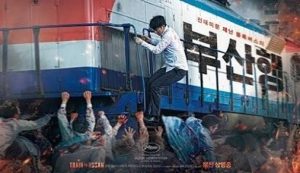 The primary focus of the movie is Seok-woo (played by the handsome Gong Yoo of The 1st Shop of Coffee Prince), a Seoul-based fund manager who has been neglecting his daughter Su-an. After yet another miss in his fatherly duties, he agrees to Su-An’s birthday wish – which is to see her mother (and Seok-Woo’s estranged wife) who lives in Busan. Early morning on Su-an’s birthday, the pair board the KTX just as strange things start happening around the city. Aboard the train with them is a motley crew of different people – a gruff husband and his pregnant wife, a pair of elderly sisters, a cold-hearted COO, a student baseball team and their supporters, and others. Just as the train is about to leave, a strange girl leaps onto one of the cars, evidently trying to flee something. Then, the nightmare slowly unravels for the passengers.
The primary focus of the movie is Seok-woo (played by the handsome Gong Yoo of The 1st Shop of Coffee Prince), a Seoul-based fund manager who has been neglecting his daughter Su-an. After yet another miss in his fatherly duties, he agrees to Su-An’s birthday wish – which is to see her mother (and Seok-Woo’s estranged wife) who lives in Busan. Early morning on Su-an’s birthday, the pair board the KTX just as strange things start happening around the city. Aboard the train with them is a motley crew of different people – a gruff husband and his pregnant wife, a pair of elderly sisters, a cold-hearted COO, a student baseball team and their supporters, and others. Just as the train is about to leave, a strange girl leaps onto one of the cars, evidently trying to flee something. Then, the nightmare slowly unravels for the passengers.
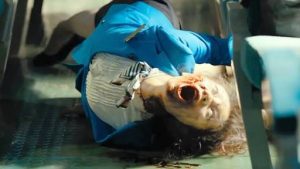 Train to Busan succeeds on all levels. It is a fast-paced thriller that will bring its viewers to the edge of their seats, serving them the whopping array of zombies that they came in to see. Creative ways of keeping the thrills going for almost two hours are executed seamlessly, providing new things for anyone who is a fan of the genre. The zombies themselves are rendered well, sufficiently monstrous without going overboard, and with movements that can be elegant and urgent when need be; they are of the 28 Days Later variety – fast and furious.
Train to Busan succeeds on all levels. It is a fast-paced thriller that will bring its viewers to the edge of their seats, serving them the whopping array of zombies that they came in to see. Creative ways of keeping the thrills going for almost two hours are executed seamlessly, providing new things for anyone who is a fan of the genre. The zombies themselves are rendered well, sufficiently monstrous without going overboard, and with movements that can be elegant and urgent when need be; they are of the 28 Days Later variety – fast and furious.
The psychological level is also clearly delineated – but with sufficient nuance. Here, we get morally complex characters who are very real. It is not a dichotomized world of good and bad people, where the white hats are pure and the black hats are fully corrupt. The protagonist is a selfish man whose primary instinct is to fend only for himself and his daughter. The gruff husband is a douchebag who is not all that he seems to be. Even the elderly sisters provide a taste of reality and pragmatism beyond grandmother stereotypes. These are people who often subvert tropes, where (for the most part) the ones you expect to like turn out to be not-so-likeable while the ones you’re prepared to despise become the very ones you root for.
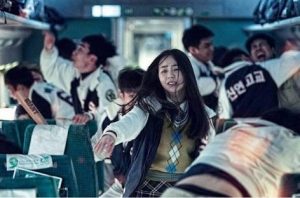 It is a train full of people who do human things and react in human ways, where you condemn the actions of people while understanding the reasons for their often-despicable decisions. This is because you will see yourself reflected in these people; you will end up trying to convince yourself that, in this situation, you would 100% always do the right thing but, at the back of your mind, you will ask yourself if you really would do so in the face of an apocalypse. It is a nigh-impossible moral dilemma of sacrifice and self-preservation, helping others versus survival, and what each character does with this central dilemma becomes a very engaging dimension of the movie, perhaps more so than the zombies pouring in left and right, and often the results are surprising.
It is a train full of people who do human things and react in human ways, where you condemn the actions of people while understanding the reasons for their often-despicable decisions. This is because you will see yourself reflected in these people; you will end up trying to convince yourself that, in this situation, you would 100% always do the right thing but, at the back of your mind, you will ask yourself if you really would do so in the face of an apocalypse. It is a nigh-impossible moral dilemma of sacrifice and self-preservation, helping others versus survival, and what each character does with this central dilemma becomes a very engaging dimension of the movie, perhaps more so than the zombies pouring in left and right, and often the results are surprising.
Of course, as with any good story, there is growth in many of these characters, which makes the journey worthwhile. The final face-off of Seok-woo and the elderly CEO is, in particular, very telling – for it is in effect Seok-woo’s confrontation of what his future could be, barring the zombie outbreak, should he not change for the better.
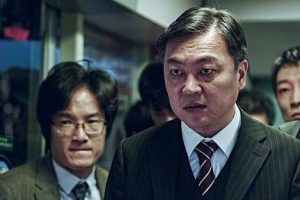 Then there is the overarching social commentary that the film presents. Much like The Mist, this movie presents a microcosm of society in an enclosed space and manages to bring a wide range of social issues to the forefront. It becomes a paranoid society that rejects and hates the uncertain just as the basest human instincts surface in the face of survival; in essence, it reminds us of the dangers of mob mentality (an interesting parallel to the mobs of zombies overrunning the country). It is a burning judgment of government ineffectivity, corporate greed, classism, and media manipulation, particularly in light of several tragedies that have hit South Korea in the last few years. On a smaller scale, it also critiques the neglect of family and its downstream impact; that final scene – with that song – is heartbreaking, especially when you reflect on the build up to that poignant moment.
Then there is the overarching social commentary that the film presents. Much like The Mist, this movie presents a microcosm of society in an enclosed space and manages to bring a wide range of social issues to the forefront. It becomes a paranoid society that rejects and hates the uncertain just as the basest human instincts surface in the face of survival; in essence, it reminds us of the dangers of mob mentality (an interesting parallel to the mobs of zombies overrunning the country). It is a burning judgment of government ineffectivity, corporate greed, classism, and media manipulation, particularly in light of several tragedies that have hit South Korea in the last few years. On a smaller scale, it also critiques the neglect of family and its downstream impact; that final scene – with that song – is heartbreaking, especially when you reflect on the build up to that poignant moment.
As for the performances, all are worth praising. Gong Yoo is very believable as a man caught between his career and his family, and he is able to take the flaws of the character and make him still sympathetic; his ability to take Seok-woo through his arc is pretty well-done. Kim Su-an, the little girl, is especially amazing, and if she continues this level of acting, she has a bright future ahead of her. The rest of the cast all manage to shine in their own ways as well.
 All in all, Train to Busan is a film worth watching. Even if you’re not a huge fan of horror or the zombie genre, this should be the exception that I highly encourage you to go out and watch. It is a wonderfully-made, world-class horror-thriller that will not just make you jump and scream; it will also make you actually think and feel.
All in all, Train to Busan is a film worth watching. Even if you’re not a huge fan of horror or the zombie genre, this should be the exception that I highly encourage you to go out and watch. It is a wonderfully-made, world-class horror-thriller that will not just make you jump and scream; it will also make you actually think and feel.
My Rating: 9.5 out of 10 Stars
Directed By: Yeon Sang-ho
Starring: Gong Yoo, Kim Su-an, Jung Yu-mi, Ma Dong-seok, Ahn So-hee (of Wonder Girls fame), Choi Woo-shik, Kim Eui-sung, Choi Gwi-hwa, Jung Suk-yong, Ye Soo-jung, Park Myung-sin, Jang Hyuk-jim, Kim Chang-hwan, Shim Eun-kyung, Kim Yool-ho
The film was just released in the Philippines last Thursday. Catch it at a theater near you. Stat.

